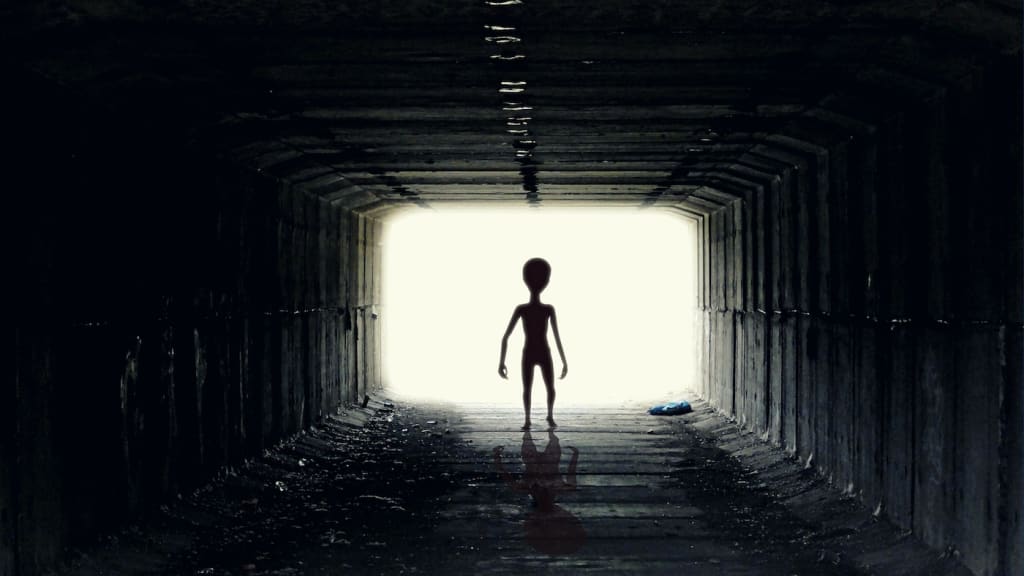
DO ALIENS REALLY EXIST? That's an interesting question! There is no definitive evidence on the existence of aliens and life on other planets. The existence of aliens remains a topic of debate and speculation among scientists, researchers, and the general public.
NASA has sent five rovers and four landers to the surface of Mars. Additionally, orbiters have been outfitted with some amazing cameras to take pictures of the whole surface of the Red Planet. But we've only explored a tiny fraction of Mars. And that's only one of the promising bodies to look for life in our solar system.
There are icy moons in the outer solar system like Saturn’s moon Enceladus and Jupiter’s moon Europa that look like they may have subsurface oceans that could be habitable. And that's just what's in our solar system. The more exoplanets we find around other stars, the more we learn about how many different environments could exist for life.
There are many theories and hypotheses that suggest the possibility of life on other planets, given the vastness of the universe and the number of potentially habitable worlds. Some scientists point to the discovery of microbial life forms in extreme environments on Earth, such as deep sea vents and polar ice caps, as evidence that life could exist in similar conditions on other planets.
As Carl Sagan says: “The universe is a pretty big place. If it's just us, it seems like an awful waste of space.” So, NASA will keep looking.
Additionally, there have been reports of unidentified flying objects (UFOs) and encounters with extraterrestrial beings, but the veracity of such claims is subject to skepticism and controversy. Until there is concrete evidence, the question of whether aliens exist remains a mystery.
Search for Extraterrestrial Intelligence (SETI ):
In 2040, Americans plan to vote in a U.S. presidential election. Japan promises to stop using nuclear power. Britain’s Prince George will turn the ripe age of 27. And, as the interactive above demonstrates, the world is likely to find alien life. It could happen even sooner, depending on how many civilizations are out there to be found. To understand why this is, it helps to know about someone named Frank Drake. Drake is the least lonely man on Earth—if not in the entire galaxy. Most of us are reserving judgment on whether there is intelligent life on other planets; we haven’t even found bacteria yet, much less a race of aliens with Internet service and takeout food. But Drake, an astrophysicist and chairman emeritus of the California-based SETI (Search for Extraterrestrial Intelligence) Institute, has no such doubts.
It was in 1961, when he was working at the National Radio Astronomy Observatory in Green Bank, W. Va., that Drake developed the eponymous—and now famous—Drake Equation, which calculates how many advanced and detectable civilizations there should be in the Milky Way in any one year. The number turns out to be potentially huge, and while it’s admittedly based on a number of Earth-centric suppositions—the collapse of any one of which calls much of the equation into question—all of those suppositions are based on increasingly solid science.
Astronomers looking for alien signals have examined only a few thousand star systems so far. But as SETI Institute senior astronomer Seth Shostak has noted, the rate at which researchers are able to process the massive amounts of data that radio telescopes receive doubles approximately every 18 months to two years, meaning it grows by a factor of ten every six years or so.
The Milky Way has around 100 billion star systems that could conceivably host intelligent life under our current assumptions. An estimate of 100,000 (105) active civilizations in the galaxy would mean one per million star systems. At the exponential rate of growth in signal processing, researchers will have examined one million candidates by around 2034, bringing the odds of discovery to the probable. Adding or removing a zero from the estimate of the number of civilizations out there merely adds or subtracts six years from the estimate, respectively, since that’s how long it takes to expand our search proportionally. See you in 2040, aliens.
About the Creator
shariq
Trying to write something out of the box.






Comments (1)
Very interesting I want to know more..